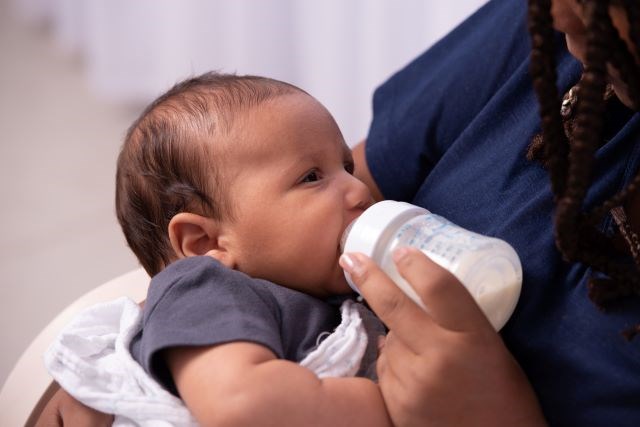The closure of a large baby formula manufacturing plant in the U.S. has led to a shortage in Canada of food products designed for infants with food allergies and certain medical conditions.
Health Canada issued an advisory on Wednesday morning, urging parents to speak to a health care professional to discuss their baby’s needs and possible alternative products.
It said the closure of Abbott Laboratories in the U.S. – amidst a global shortage of baby formula – had led to the issue.
What you should do
Speak to a health care professional, such as your doctor or pharmacist, to discuss your baby’s needs and possible alternative products and how to transition them into your infant’s diet.
If you are combining bottle-feeding and breastfeeding, try to maintain your breastmilk supply and consult your health care professional if you need advice on an allergen-free diet.
Do not attempt to make homemade infant formula as it can put your baby’s health at risk. Commercial infant formula contains many important nutrients that cannot be created at home.
Do not use other substitutes such as cow’s milk, goat’s milk, evaporated milk, soy or rice beverages as they are not nutritionally complete.
Do not acquire infant formula or breastmilk from unknown sources, such as online groups or third parties.
When purchasing infant formula, reserve specialty infant formulas for those with medical conditions requiring these ones and avoid buying large amounts
Affected products
There are two types of formulas for babies with food allergies: extensively hydrolyzed infant formulas and amino acid-based formulas. In certain provinces, the supply of these products is not meeting demand.
The shortage of these products is putting additional pressure on the limited supply and Health Canada said that it is “critical that consumption of these products be facilitated by doctors only to babies who require them.
“Health Canada is monitoring the supply situation and is working with manufacturers to import this product where possible.
“Other manufacturers have increased their production to quickly provide alternative products and Abbott is working with the U.S. Food and Drug Administration to safely resume production at its facility in the near term.”
Health Canada acknowledged that “this can be a distressing situation for parents and Health Canada is doing everything it can to mitigate the situation to provide parents with safe and healthy alternatives.
“The Department has published an interim policy to recommend enforcement discretion to facilitate the importation of equivalent and safe infant formulas that have been approved by a foreign regulatory authority or are allowed to be sold in foreign jurisdictions that have high quality and manufacturing standards similar to Canada.
“The interim policy includes a list of products eligible for this policy that is updated regularly.”

